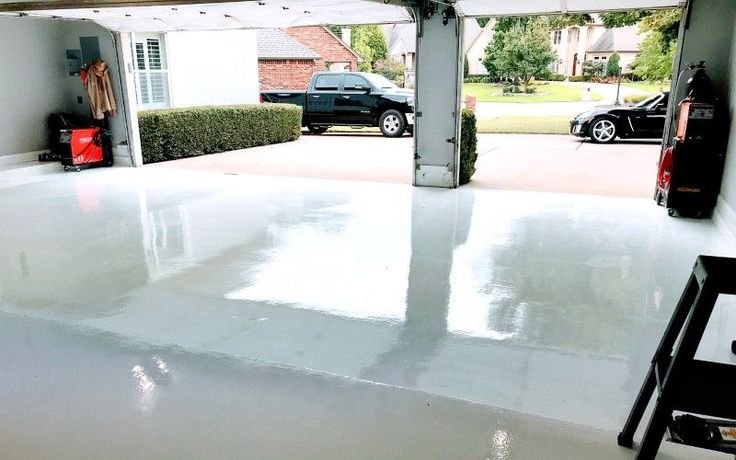Our Flooring Services
Epoxy and polyurea flooring is a durable and versatile flooring solution characterized by its resin-based composition. It consists of a hardener and a resin that, when combined, create a strong, long-lasting surface suitable for various environments, including industrial, commercial, and residential spaces.
One of the primary advantages of epoxy and polyurea flooring is its exceptional durability. It can withstand heavy foot traffic, impacts, and abrasions, making it an ideal choice for garages, warehouses, and manufacturing facilities. In addition to its strength, epoxy and polyurea flooring is resistant to chemicals, oils, and stains, which enhances its longevity in settings where spills are common.
Epoxy and polyurea floors are also known for their aesthetic appeal. They are available in a wide range of colors, patterns, and finishes, allowing for customization to suit individual design preferences. The high gloss finish not only enhances the visual aspect of the floor but also reflects light, contributing to improved visibility in work areas.
Installation of epoxy and polyurea flooring typically involves several steps, including surface preparation, the application of a primer, and the pouring of the epoxy and polyurea resin. Proper preparation is critical to ensure the bond between the floor and the epoxy and polyurea is strong and effective. The curing process is also essential, as it allows the material to harden and reach its full strength.
Another important consideration is maintenance. Although epoxy and polyurea flooring is easy to clean and maintain, it does require occasional upkeep to preserve its appearance and integrity. Regular sweeping and mopping, along with the use of appropriate cleaning agents, will help maintain the surface.
In summary, epoxy and polyurea flooring offers a robust option for those seeking a flooring solution that combines durability, aesthetic versatility, and low maintenance, making it an ideal choice for a multitude of applications.
The driveway flooring is a pivotal component of your property's exterior, combining functionality with aesthetic appeal. Common materials for driveway construction include asphalt, concrete, gravel, and pavers, each offering distinct advantages and considerations.
Concrete Driveways: Concrete offers a durable and long-lasting solution. It can be customized with various finishes, colors, and patterns, contributing to an attractive curb appeal. However, it may be more costly initially and can crack over time if not properly maintained or installed.
Garage flooring options are diverse and cater to varying needs, preferences, and budgets. Here are the most common types:
1. Epoxy Flooring
Epoxy coatings are a popular choice for garage floors due to their durability and resistance to stains, chemicals, and impacts. This type of flooring consists of a resin and hardener that create a hard, glossy finish. Epoxy flooring is easy to clean, slip-resistant, and can be customized with various colors and patterns.
2. Polyurea Flooring
Polyurea is a newer option that offers even greater flexibility and quicker cure times compared to epoxy. It is resistant to UV rays, making it suitable for areas with direct sunlight. Polyurea flooring is highly durable, often used in industrial settings, and comes in a variety of colors and finishes.
Conclusion
Selecting the right garage flooring depends on your specific needs, lifestyle, and aesthetic preferences. Understanding the characteristics and benefits of each type can help you make an informed decision for your garage space.
Contact us
Interested in working together? Fill out some info and we will be in touch shortly. We can’t wait to hear from you!


